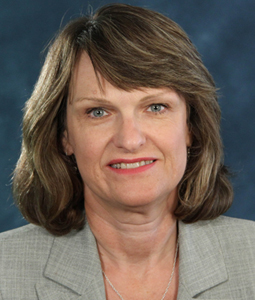 Gillian Steele, internal consultant in DePaul's Division of Enrollment Management and Marketing
Gillian Steele, internal consultant in DePaul's Division of Enrollment Management and MarketingMuch has been written about the importance of mentorship in helping manage our careers. More often than not, it refers to the development of leadership skills and moving “up” in the world. We often think about a mentor as being like us yet more senior, someone who can help us develop our leadership skills and make the necessary connections to climb the ladder.
Yet, the mentor you may need for your specific situation may be someone you least expect. I’d like to illustrate through one of my experiences how a person may be a perfect mentor despite not fitting the usual profile.
When I was 32 (a few years ago now!), I moved to Singapore from the UK where I’d been an occupational therapist leading a team of therapists for a large mental health unit. I was very excited about the opportunity to practice OT in a new environment and culture. It didn’t take long for that excitement to turn to anxiety. Everything was different – the physical environment, the treatment philosophy and the culture of the patients and staff. Initially, I was the only Caucasian working in this newly built over 2000 bedded mental health unit. I felt totally out of my depth.
Then, I met Aru.
Aru was a psychiatric nurse, an Indian Singaporean – a minority in Singapore’s multi-cultural society. I was immediately taken with his calm, friendly and nurturing approach. He was extremely familiar with and respectful of the different cultural backgrounds and norms of the staff and patients and was aware of the need to adapt day to day, situation to situation. He willingly explained how those norms influenced his approach and had total confidence in my ability to apply my skills in that setting, He would ask me how I handled such situations in the UK and if appropriate, suggest alternative approaches.
As I developed my skills and confidence, I had less questions but I always knew he was there if I needed him. Although we never used the words “mentor” or “mentee”, he was one of the most impactful mentors I’ve ever had. Aru wasn’t senior to me or more educated. He was someone I respected who had skills I needed to develop and he used behaviors that helped me learn and develop my confidence to do so. Like all good mentors, he felt he learned from me too.
So many career transitions are about finding our purpose, moving into different roles in new organizations and departments or adapting to changing work cultures. Mentorship can be about achieving our goals whether that is managing a project for the first time or gaining a Master’s degree while working full-time and bringing up a family. If someone can help you learn how to navigate new waters and guide you through a process, they can be a mentor to you regardless of their seniority.
I will talk more about mentorship and the effective behaviors of mentors and mentees at the DWN Brown Bag on Tuesday, Jan 30, 2018. I look forward to seeing you there!
Click here to register for the brown bag event with Gillian, where she will share her insights and expertise on the topic of mentorship. Bring your lunches and join us! Gillian Steele is an internal consultant in the Division of Enrollment Management and Marketing, and a member at large of the DePaul Women’s Network. She joined DePaul in 2006 after a varied career in healthcare, teaching English as a second language, intercultural consulting, outplacement and career management. As a mentor with Menttium for over 10 years, Gillian has partnered with both domestic and international high-potential women to help them develop the confidence and skills to move into leadership positions. Read her full bio here.